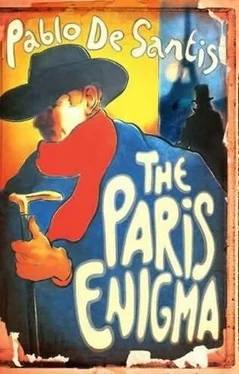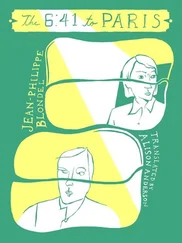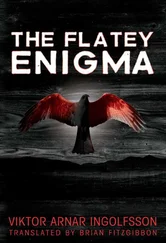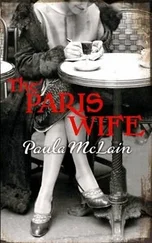Arzaky didn’t seem to take Isel’s confessions very seriously, because he asked him, “And don’t you want to renounce your servant as well, to make your contrition complete?”
“Get rid of Joseph? Oh, please, no. I might be crazy, Mr. Arzaky, but not so crazy as to think one can get by without servants. What’s more, he keeps me alive. On my nights of insomnia he tells me, in infinite detail, of Sinbad’s spasmodic movements as he fell into the water, he describes how his face lit up with terror. He fills my sleepless hours with those few dreadful seconds. How could I go on living without that bedtime story?”
Six days had passed since Darbon’s murder, and the halls of Madame Nécart’s hotel were no longer filled with leisurely waiting assistants. The armchairs were empty, and even the Sioux Indian had set off on some mission.
“Where are they? How would I know where they are?! ” replied the owner. “Finally those savages are out of the drawing room. If my husband were alive, he never would have stood for having a redskin Indian in our hotel.”
The f light en masse had me worried. While they were there, I felt privileged to have a case. But with them out in the city, I couldn’t help thinking that they were the ones with the real clues, and that I was left walking in the shadows.
Arzaky didn’t seem to trust the information we had either, because he sent me to look for Grialet and Bradelli on my own.
“Grimas, the editor of Tra ce s , knows them well. He published several magazines for them. Ask him where they are.”
“But,” I protested, “you can get the truth out of suspects with just a look. I’m a foreigner, I’m inexperienced, I’m only an assistant…”
He dismissed my arguments with a contemptuous wave of his hand.
“Detective’s apprentice, son of a shoemaker: don’t be so sheepish, just go and distract Grialet.”
“I’m better at distracting myself than anyone else. And even if I manage to, what do I do then?”
“What do you think? Look for oil-stained clothes or gloves or shoes, of course.”
“If Grialet is the killer, he’s had time to get rid of those things.”
“You are an Argentine spendthrift. No good Frenchman would ever throw away a pair of shoes, not even if holding on to them could send him to the gallows.”
Adrien Grimas’s publishing house was located on the first f loor of a building in the Jewish quarter. There was a fabric store below. Grimas was eating a bowl of soup when I came in, and as soon as he saw me he hurriedly tried to hide the large blue notebook where he kept his accounts. The editor was supposed to give a percentage of his profits to The Twelve Detectives, but he claimed to have recorded a loss. Later I mentioned to Arzaky that it seemed very strange to me that the wisest men on the planet, capable of finding a killer from one hair or a cigarette butt, could be taken in by that little bespectacled man, who made only a cursory attempt to cover his tracks. He replied, “It’s a well-known tale: Thales of Miletus was walking through the field, looking up at the stars, when he fell into a well. A Thracian slave who saw him laughed and asked, ‘How can a wise man know so much about the distant stars and not notice the well that’s in front of him? ’ Well, in our case, we are twelve men who all fell into the well at the same time because we were looking up at the stars.”
Once Grimas had hidden his ledger book, he went back to finishing his soup of onions and meat.
“Arzaky won’t speak to me,” he said. “I wanted to meet you so I could give you some copies of Tra ce s and remind you to take notes as you go along, so you’ll be prepared when it comes time for you to write the story of Arzaky’s case. I will ask that you maintain Tanner’s style.”
“I don’t have enough experience to be able to tell Arzaky’s adventures, much less in Tanner’s style. Besides, I can’t write in French. I’m just a temporary assistant, until Arzaky can find someone permanent.”
“We’re all temporary, Monsieur Salvatrio. We are all awaiting our replacement.”
I asked the editor about Grialet and Bradelli, and he in turn asked me, “Arzaky’s following up on the Hermetic lead?”
“Are you surprised?”
“No. I knew that Louis Darbon was on the trail of the tower’s enemies. Occultists are like detectives: they investigate the lines that join the macrocosmos to the microcosmos. But while detectives look for signs in corners, at the bottom of drawers, among the f loorboards, the occultists do the opposite: they search in gigantic things, in monuments, in the shapes of cities, or the pyramids. Then they try to find a relationship between those enormous things and their own private miseries. Detectives go from the tiny corner to the world, occultists from the world to the tiny corner. That’s why the tower has made such an impression on them. Where others see beauty or ugliness, the steel or the height, they see the symbolism.”
“I thought they were interested only in the great monuments of the past. I wouldn’t have thought that the Eiffel Tower would attract their attention…”
“The Eiffel Tower is not the Eiffel Tower; it’s the tower of Koechlin, his assistant, who had to work long and hard to convince Eiffel to get on board with the project. Maurice Koechlin, an engineer like Eiffel, was the one who made the first sketch and later designed the structure. Now everyone talks about Eiffel, but you’ll see-in a few years it’ll be called the Koechlin Tower. You want to make a bet? Koechlin is Swiss, maybe that’s why he doesn’t like to draw attention to himself. He first thought of devoting himself to medicine, and studied anatomy in Zurich. When he designed the tower he was thinking of the organization of the fibers in the femur, which is a very strong, lightweight bone, the longest in the human body. Pythagoras was also obsessed with the femur; he found its relationship to music and, as a result, a link between that bone and universe’s hidden arithmetic. So our occultists are convinced that Koechlin is a Pythagorean devotee who divulged his greatest secret. The tower has always been a symbol of the center of the world, which is why these occultists believe ours is a false center that they must expose. Also, lately they’ve been leaning more toward the Catholic Church, and they don’t like the fact that the tower is taller than Saint Peter’s. It doesn’t really matter though; it’s a mistake for Arzaky to investigate them. I know them well, they’re harmless, I’ve published several of their magazines. Everything goes fine through the second issue, and then the infighting starts. It’s hard to work with people who want to publish their exploits and keep them secret at the same time.”
Grimas ate the last drop of soup and moved the plate away, onto a pile of papers. Caleb Lawson’s name was on the top page. It seemed sacrilegious to treat The Twelve Detectives’ material that way.
“Well, I’d still like to know where Grialet and Bradelli are.”
“Of course, the more moves Arzaky makes, the more pages you’ll write for me, isn’t that right?” I shook my head no, but he ignored me. “Arzaky’s adventures are the most chaotic, but our readers love them, who knows why. Tanner brought out the best in Arzaky. There was always a moment in his adventures when Arzaky seemed confused, about to admit defeat, sometimes he even disappeared for two or three days, and Tanner narrated the details of his absence with a master hand. He described his empty study on the top f loor of the Numancia Hotel, his unopened correspondence, and the dust that gathered on his desk. Then Arzaky would make a triumphant return and resolution would come swiftly. Christ also had to spend a good while in the desert before allowing the prophecies to be fulfilled.”
Читать дальше












